 Intelligent Design
Intelligent Design
“Teleology in Nature” Gains a Beachhead in Germany
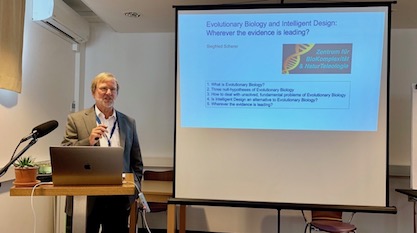

Microbiologist Dr. Siegfried Scherer speaking at the recent meeting of the Zentrum für BioKomplexität & NaturTeleologie.
The idea that life gives evidence of teleology, of being purposefully directed to a goal, is very old. Its roots run from ancient Greek philosophy to the thought of Darwin’s colleague turned rival, Alfred Russel Wallace. It got a modern re-launch in the United States with the 1984 publication of The Mystery of Life’s Origin by Thaxton, Olsen, and Bradley. Since then, the search for truth about biology has faced ongoing resistance from toxic materialism.
Nonetheless, skepticism about strict Darwinian orthodoxy has won over important thinkers, willing to put their name on their views. Those include 1,000+ PhD scientists and most recently Yale’s David Gelernter. Lately, the momentum has increased around the world, in Europe, South America, and Asia. A research center affiliated with Discovery Institute opened at Mackenzie Presbyterian University in São Paulo, and we got to know renowned Brazilian chemist Marcos Eberlin.
Now it’s great to be able to announce a brand new group for the German-speaking nations, the Zentrum für BioKomplexität & NaturTeleologie. In English, it’s the Center for BioComplexity and Teleology in Nature, led by paleontologist Günter Bechly and microbiologist Siegfried Scherer. The group had its launch event last week, where Discovery Institute scholars Stephen Meyer, Ann Gauger, Brian Miller, and Michael Denton all had the opportunity to speak.
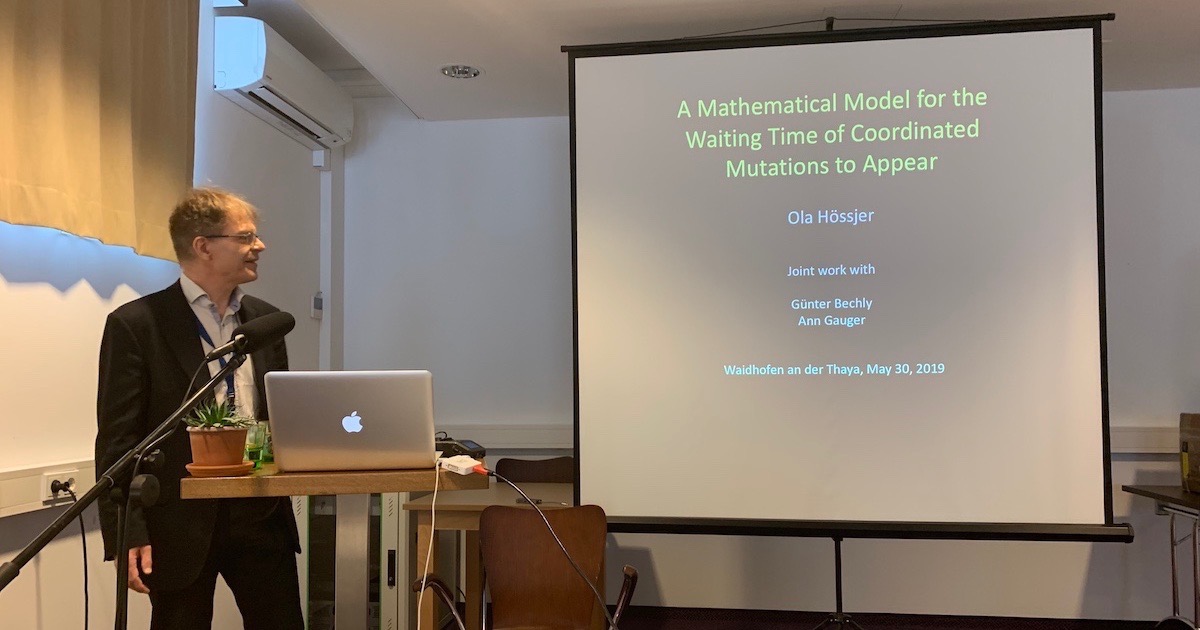
Mathematician Ola Hössjer, University of Stockholm.
A Closed Meeting
China and Brazil are more tolerant, but in seeking to suppress dissent against Darwin, Europe is probably almost as punishing as the United States. I could tell you the names and university affiliations of some of the 31 participants — oh, would I love to — but that could easily put them in career peril. That’s one reason the meeting was closed and is being publicized only now that it’s over.
The Zentrum met from May 29 to June 1 in Waidhofen an der Thaya, Austria. [Update: By the word “Germany” in the headline, I mean the German-speaking lands.] As they explain about their purpose, it is to ask many of the same questions that interest other design researchers:
The focus is on the following questions: Can philosophical naturalism and materialism plausibly explain all natural phenomena? Is the currently popular scientism scientifically and philosophically tenable? Is a teleological view of nature legitimate and supported by scientific evidence?
The main goals of the association are the coordination of research projects, the advancement of an objective, critical, and open discussion of naturalistic and teleological views of nature within academia, as well as raising public awareness of this subject in the German-speaking world. Annual symposia and summer seminars are planned.
A Familiar Situation
Speakers hailed from Germany, Austria, Switzerland, Liechtenstein, Denmark, Sweden, Poland, Israel, Italy, the United Kingdom, the United States, Australia, and New Zealand. I’m looking over the list of abstracts now, indicating which presentations were recorded because the speaker is “out” as a proponent of a teleological view and which were not recorded, out of understandable caution. It’s a familiar situation, unfortunately.
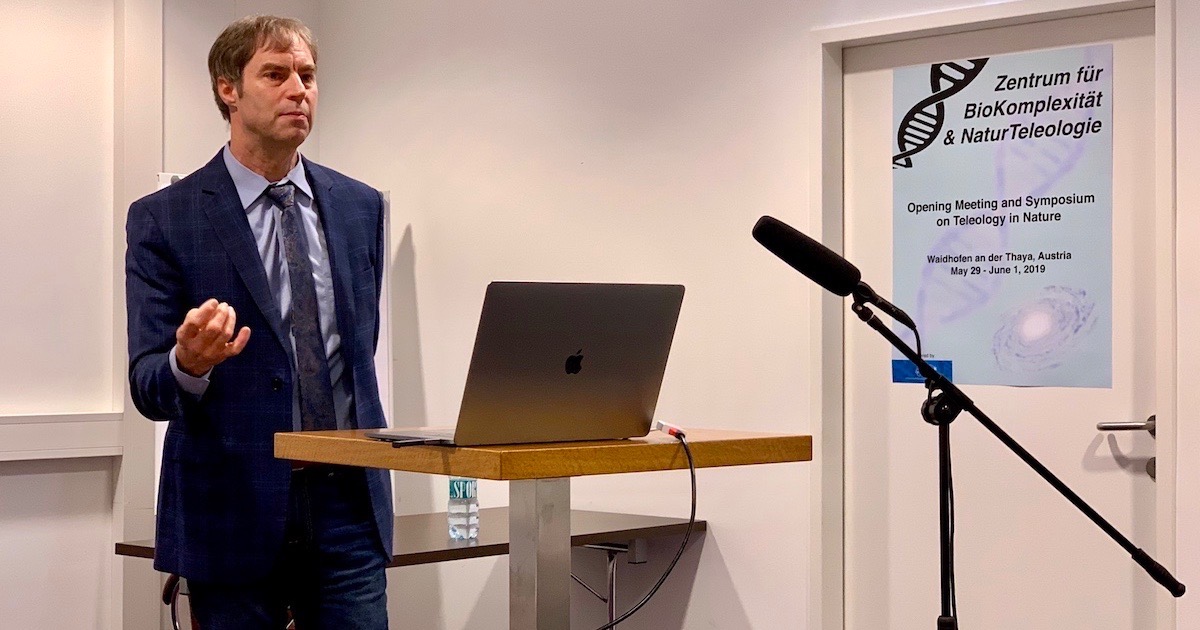
Philosopher of science Dr. Stephen Meyer, Discovery Institute.
Some of the 18 public discussions covered subjects including “Discontinuities in the Fossil Record,” “Thomas Aquinas and Intelligent Design,” “The Fine-Tuning of Nature for the Major Innovations in the History of Life,” “Causal Circularity in Biology,” “Non-linear and Patchy Trait Distribution in the Hominin Fossil Record,” “A Mathematical Model for the Waiting Time of Coordinated Mutations to Appear,” “The Explanatory Power and Heuristic Value of Intelligent Design,” and “A Thermodynamic Analysis of the Rarity of Protein Folds.”
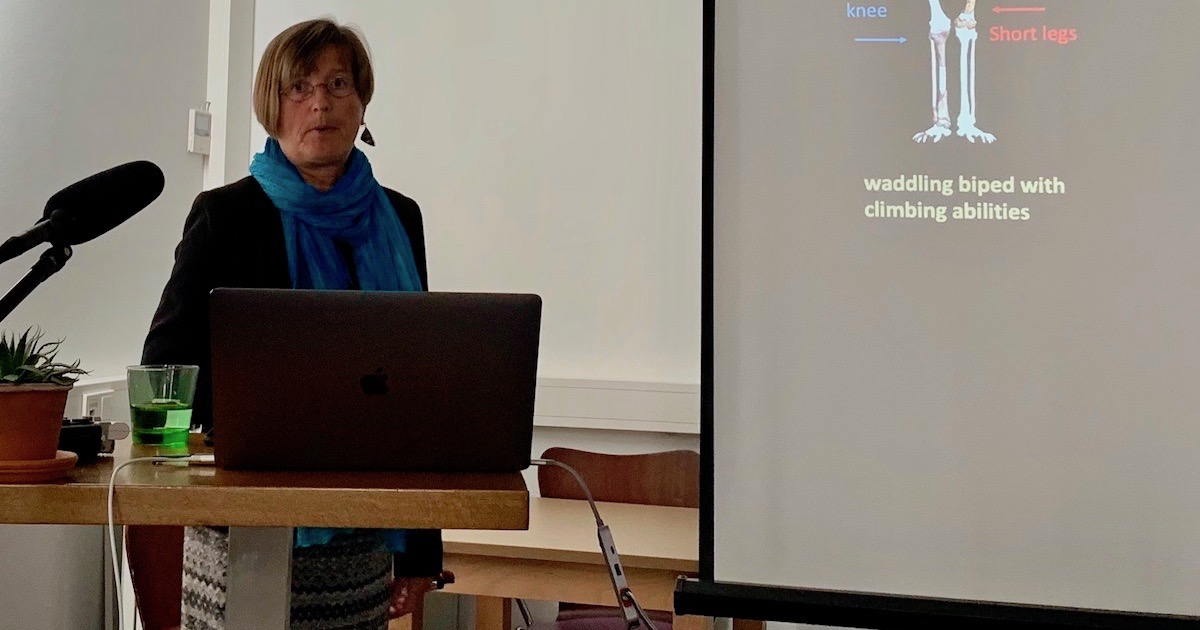
Biologist and anthropologist Dr. Sigrid Hartwig-Scherer, Germany.
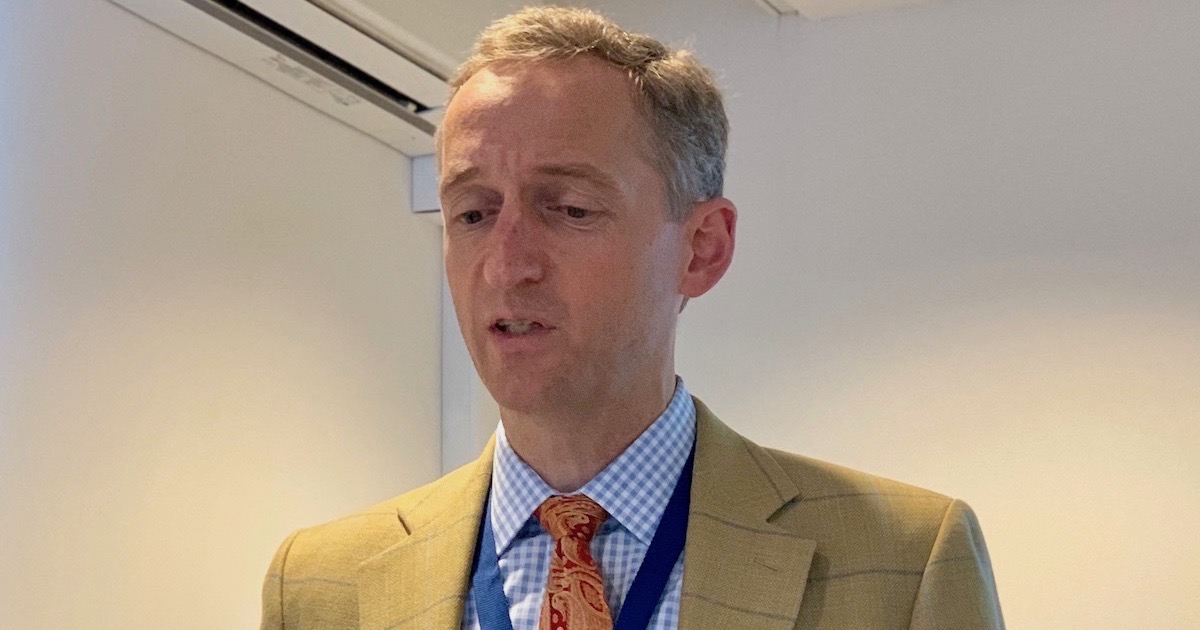
Philosopher Prof. Dr. Daniel von Wachter, Liechtenstein.
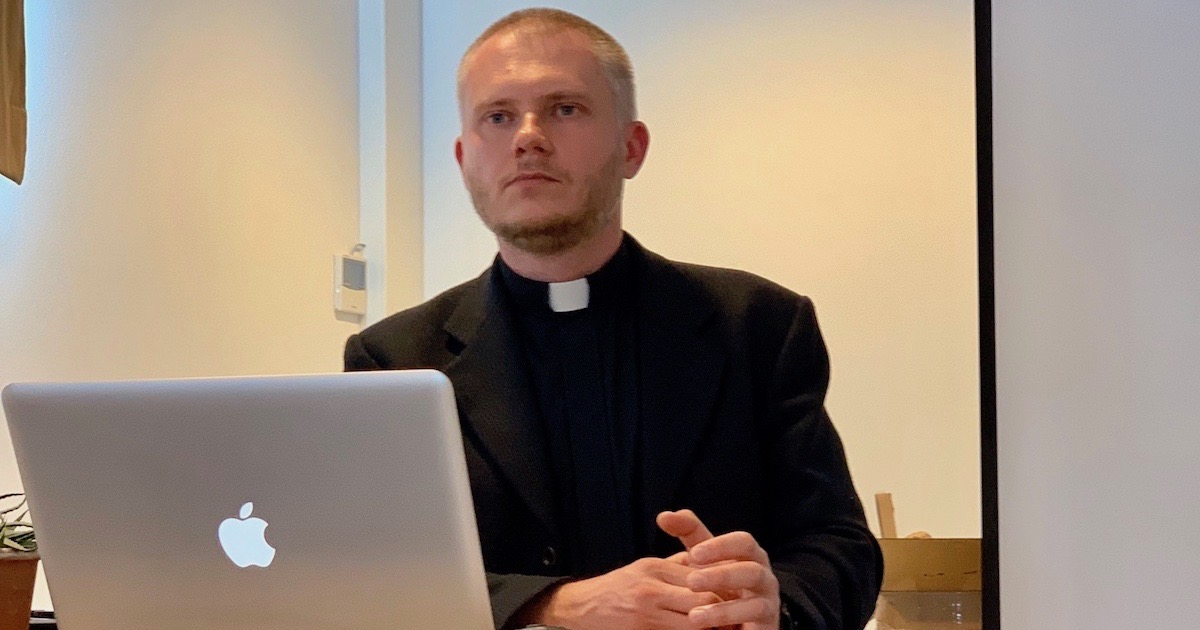
Father Dr. Michael Chaberek, author of Aquinas and Evolution and Catholicism and Evolution, Poland.
As with Discovery Institute, the Zentrum plans to pursue its work not from a faith perspective but from a scientific one. This is not about “apologetics” but about getting at the truth about nature, freed from the blinders of materialism. Congratulations in particular to our friend Dr. Bechly, whom readers of Evolution News will know well, and Dr. Scherer, a professor at Munich’s Technical University.
There are more plans for the internationalization of ID, already in the works or anticipated for the near future. However, those will have to wait until I can share them with you, again without putting anyone in danger.
